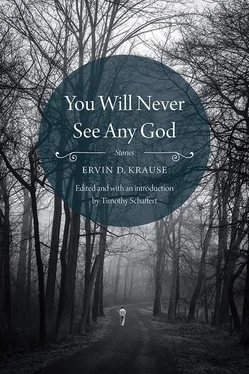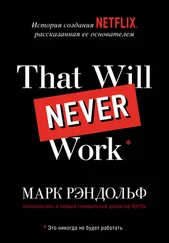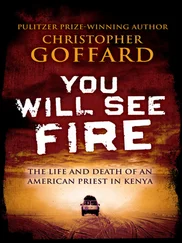“We better pull them out of the car and wrap them up separately, here on the snow,” I said.
“No, you better not do that,” Anderson said. “The sheriff might not like that, when he gets here. He wants to see them like they are.”
I did not like Anderson. He could incense me quickly. “Nobody has to see them like that, the sheriff or Rudy Heron or anybody else.”
“You could get into trouble touching them,” Anderson said. “They got to make an investigation. You’d be changing things, and you might get arrested.”
“We’ve got to do something,” I said, looking first at Anderson, and then at the other men, too, for I could tell they nearly agreed with him. They looked into the fire, and not at me. “What about if Rudy Heron comes here? It’s the man’s wife,” I went on loudly, almost shouting at them, at these married men. “The woman’s dead. He can know that, but to see her this way… We’ve got to do something.”
“Ach, everybody knows what kind of woman she was,” Anderson said.
I was suddenly angry, and I jumped up and went around the fire and put myself in front of Anderson. “Who knows?” I shouted into his face. Anderson backed away from me and pointed at the car. “You want to tell everybody, don’t you?” I went on. “You don’t give a damn if everybody talks, and the kids and the husband and wife of those two hear about it the rest of their lives. You want to bring Rudy Heron and the whole goddamn neighborhood down here to look at them, don’t you?”
“That’s the way they died,” Anderson said.
I felt my shoulder move, wanting to hit him, but I did not. I dropped my hands and turned away from him. They were all afraid to do anything, afraid of any kind of action or involvement. Anderson, the men, even my brother wanted to treat it as if it did not really concern them. They did not want to protect the other people; they did not care.
“Do you have to get so mad all the time?” my brother asked. He was always the cooler one of us.
“They’re dead,” I said. “Let them be dead. Who gives a damn now what they were doing. But nobody else needs to know, and nobody needs to get hurt, their kids or anybody else.” I went by the men, one by one, and looked at them. “I’ll move them myself,” I said.
“I’ll help you,” Heintzelman said finally.
Heintzelman and I went to the car, but no one else would help. The bodies were hard as steel and we had a difficult time of it. We found the underclothing of the two, but the pieces were wet and had frozen and even after holding the clothing above the fire and thawing them we could not put them on because of the positions of the bodies. We buttoned them up as well as we could. We were working quickly, but there was nothing we could do, and when we heard the sound of the tractors coming over the hill, we wrapped the bodies quickly in the blankets and laid them in the snow, between the car and the fire.
It was Mellon and Orth and Tangro, farmers in the neighborhood, who came on the tractors, and Orth had brought his fourteen-year-old son along.
“Look what they’re bringing,” I said loudly. “A boy, a kid. Next it’ll be their wives and all their kids, and then we can all sit down here and have a goddamn picnic.”
“The boy is old enough,” my brother said. “What’s wrong with him coming?”
“Old enough?” I said. “Is that why you and everybody else here turned pale when you saw what was in the car? Sure, let the boy come. That’s fine. Let’s have a big exhibition because we’re all so pure, and somebody else got caught. Let’s invite everybody down here to look at somebody else’s exposed sin.” I looked directly into my brother’s eyes. “We’re all pretty pure, aren’t we?” I said.
He rubbed his forehead and almost wearily turned away from me. “Why did you bring the boy?” my brother asked Orth, when the tractors came up.
Orth was taken aback. His mouth opened to speak, but he said nothing, and then he laughed, tittering and confused, for he was surprised at my brother talking like that. “The boy’s old enough,” he said finally.
“Send him home,” my brother said sharply. The boy looked open-mouthed at my brother and then at his father.
“What is it?” the father asked. “Who’s dead?”
“Send the kid home,” I said.
“Ya, ya,” Heintzelman said slowly. “Send him home.”
Orth told the unwilling boy to take the tractor and leave.
When the boy was gone, the men came up and looked at the bodies and one of the men whistled and they came to the fire, sober-faced.
Mellon stood shivering and rubbing his hands. “It’s cold down here,” he said, and I knew he wanted to talk about something other than the two dead people.
It was bitter cold, and the wind hurtled in across the treeless fields to the west, and the tiny ice-crystals of snow were like sand.
“They’re pretty warm, I bet, shoveling coal in hell,” Anderson said, and he gave a short laugh, like a stuttering cough. He nudged Mellon and said, “Ach, they died happy,” in his sniggering, rotten voice.
“Snicker, you dumb son of a bitch,” I said. I wanted to put my hands on his scrawny rooster’s neck and strangle him.
“What you say to me?” he said. “I hit you if you say that to me.”
I stood up from the place where I’d been squatting beside the fire, and I stepped in front of Anderson, and I put my face an inch from his. “Hit me then, and I’ll break your neck and send you straight to hell, too, you dumb Swede Lutheran bastard.” We went to the same church, so I knew I could talk to him that way with impunity.
Anderson was frightened and he stood back. He shrugged his shoulders to the others, as if it was I that had gone mad.
“What’s wrong with you?” my brother asked me.
“He thinks this is all funny,” I said, “the way we all sit around here not doing anything, knowing that somebody will get hurt from it. He thinks it’s a joke if people have to suffer. Look at his face. You can see what the simple fool is thinking in his dumb face.”
“You better calm down,” my brother said.
“I’d like to,” I said. “Two people are dead, but that isn’t enough. Everybody has to know about it, and they have to get hurt, because a stupid dumb hypocrite like that stands around and snickers. He can hardly wait to get out of here so he can tell about it. He wants to see the other people hurt and in trouble.” I was shouting, and I went around the fire from the men and wouldn’t talk to them.
We heard the tractor coming a little later, and the sound of it was from a different direction, and we all stood to look, and the tractor came from the south, up from the cleared, hard-surface road. The tractor plowed and bucked against the hard, heavy drifts, but still it came on, furiously. There was a little wagon, more nearly a cart, only a sawedoff box over four tiny wheels, trailing the tractor, and the cart bounced and slid from side to side on that rough road. It was Rudy Heron.
We could see the wrapped, small heads moving with the hard movements of the cart.
“He brought the kids along,” my brother and I said together, with the same thought and in the same astounded and awful voice. Heintzelman groaned, and suddenly it was as if all the men there knew of our relationship to the two dead people; even Anderson was silent. We all moved together then, and made a half-circle around the bodies and waited for Heron.
The tractor had chains and even then it was difficult to steer, we could see that, and Rudy was holding the wheel of the tractor with savage concentration, and the cart behind lurched and swayed. The heads of the children kept bobbing up and down and they tried to hold on to the board sides.
Читать дальше











